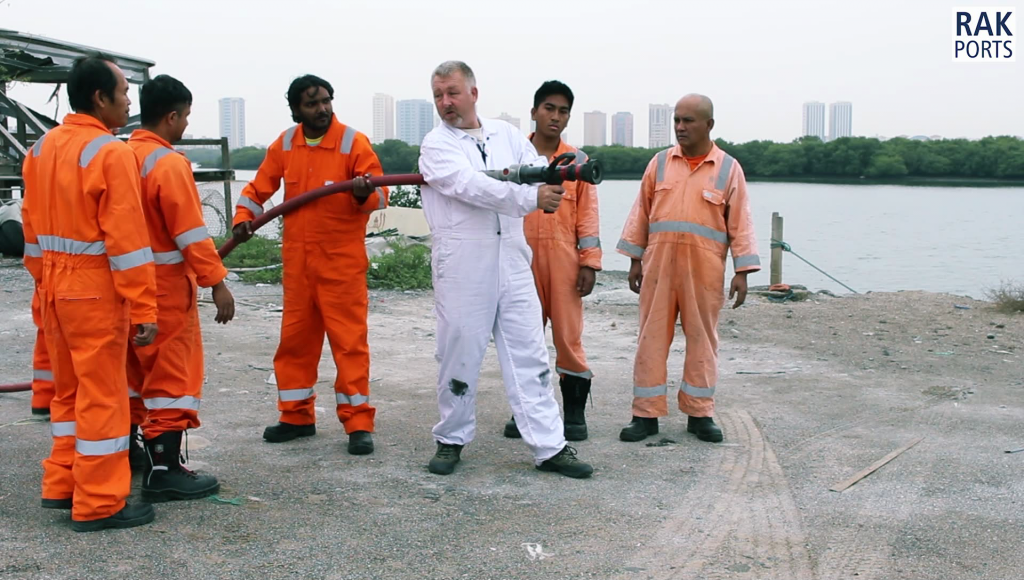RAK Ports, the commercial maritime body acting on behalf of the government of Ras Al Khaimah, has announced the establishment of the RAK Marine Training Institute.
The institute has been founded primarily to meet the growing demand for specialist marine training in Ras Al Khaimah and the Northern Emirates, which has an expanding marine community as a result of the economic success of the maritime industry within the Emirate.
Captain Mike Magee, harbour master of RAK Ports, commented: The mandatory marine requirements for training, as directed by the Federal Transport Authority (FTA) means that today, those working in UAE-based ports either as port employees or as clients of the ports need to undergo certain statutory marine training. This factor, along with the continued growth and success of Ras Al Khaimah as a maritime business hub with greater activity, prompted RAK Ports to set up their own Marine Training Institute. Having a Marine Training Institute here in RAK means that our clients and their staff can have their training needs met locally, rather than having to seek the required training further afield, which would both incur greater expense and take more time.
“The Marine Institute also further strengthens the already-compelling business case for new prospective clients to make RAK their base for international business. Not only does RAK offer unrivalled advantages to businesses in terms of location, access, and flexibility, but we now have a ready-made solution to statutory marine training requirements, which are likely to become a more prominent consideration for port-based businesses in the near future.
The institute initially will be based at Saqr Port, which is the largest of the five ports of RAK and the principal bulk-handling port in the Middle East. Elements of the training will also be hosted at Al Jeer Port, which is the most northerly port of UAE, and the courses will take place with the cooperation and involvement of the RAK Civil Defense Department.
The courses on offer include STCW 2010 (International Convention on Standards of Training, Certification and Watchkeeping for Seafarers 1978) Basic Safety course, and the vessels up to 12 metres driver course, which is now becoming a mandatory requirement from the FTA. Other courses include first aid, security, fire-fighting, oil spill, hazmat awareness, BA set user, and H2S awareness. Also, the institute will offer bespoke courses based on specific client needs, and has already rolled out specially-tailored courses in response to requests from the local marine community.
Magee added: The future vision for the Marine Training Institute is to offer high quality training and grow in line with the needs of our community and those of the Northern Emirates. We can provide training onsite for clients, both locally and to the wider UAE marine industry, and with the growing requirement for training certification in different aspects of the marine industry we can envision eventually setting-up an expanded school for marine training, potentially at Al Jeer port.

